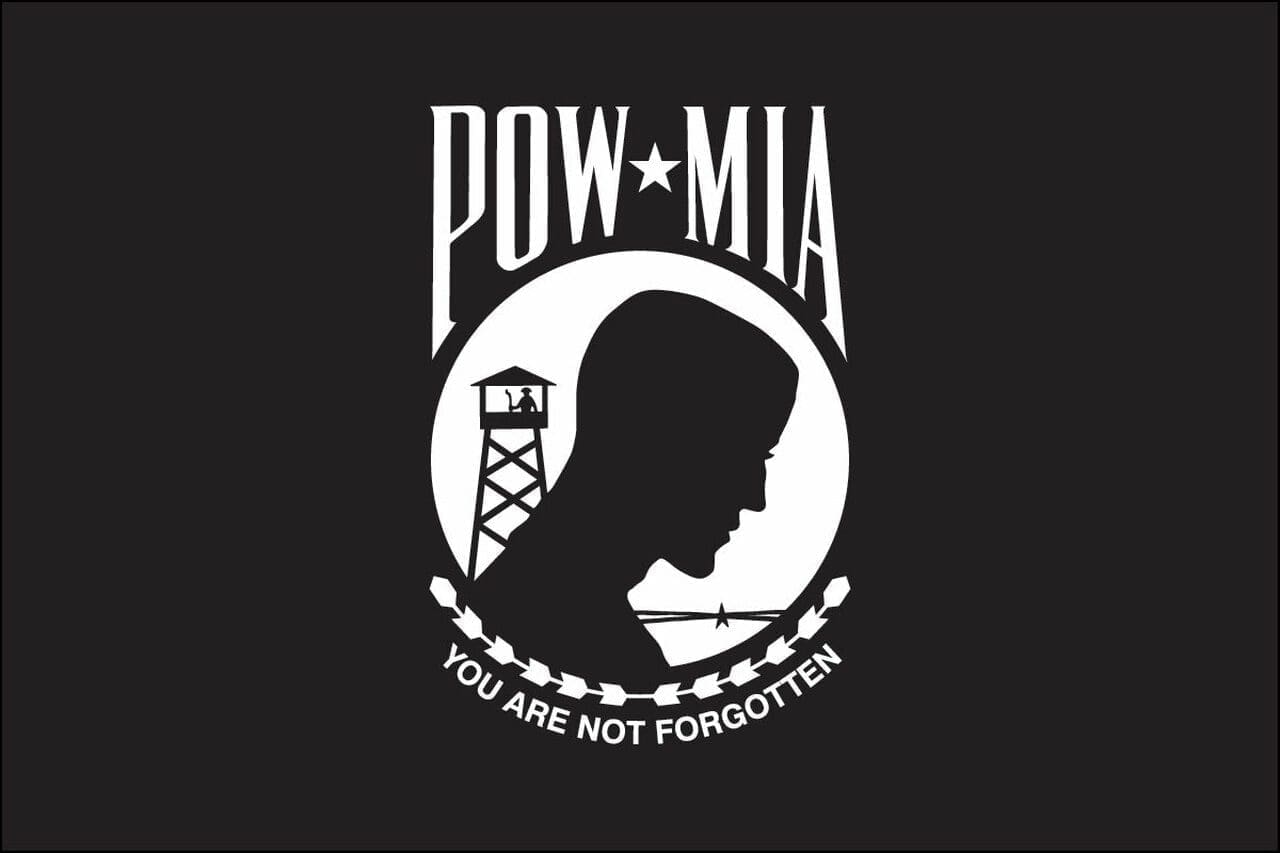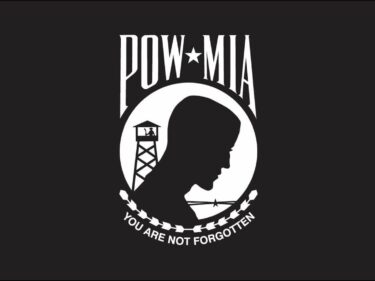Honor and Recognize the Sacrifices and Hardships Endured
The POW-MIA flag is a symbol used in the United States to honor and recognize the sacrifices and hardships endured by prisoners of war and missing in action military personnel.
The origins of the flag can be traced back to the Vietnam War, which saw a large number of U.S. servicemen and women captured or go missing. As the war progressed, concerns grew regarding the fate of these individuals and their treatment at the hands of their captors.
In the early 1970s, the National League of Families of American Prisoners and Missing in Southeast Asia, an organization formed by family members of those missing or captured during the Vietnam War, sought a symbol to represent their cause. Mary Hoff, the wife of a missing service member, played a significant role in the creation of the POW-MIA flag. She envisioned a flag that would serve as a constant reminder and symbol of hope for those still unaccounted for.
The design of the flag comprises a black background with a white silhouette depicting a guard tower, a barbed wire fence, and a gaunt figure, symbolizing a captive soldier. Above the design, the words "POW MIA" are written in white letters, and below it, the slogan "You Are Not Forgotten" is inscribed in white as well. The flag's simplicity and powerful imagery convey its message effectively.
On January 28, 1982, the POW-MIA flag was officially recognized by the United States government when it became the first flag other than the national flag to fly over the White House. Since then, it has been widely adopted and flown at various American government facilities, military installations, veterans' organizations, and individual homes.
The POW-MIA flag represents the commitment and obligation of the nation to bring home and account for all its military personnel who have been captured or gone missing during armed conflicts. It serves as a symbol of remembrance, hope, and support for those POWs and MIAs who are still unaccounted for, and is a reminder to never forget their sacrifices.





